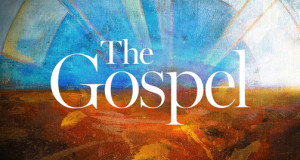
I try not to play the victim or Woe-is-Me card when my work is rejected or when it receives a poor review. But recently I experienced a rejection that made me pause and ponder on the state of literature, Christian writing and readers in general…
First, I must admit, that I myself don’t read much Christian fiction, but only because the genre has been secluded, marginalized by mainstream literature and therefore has produced subpar work as a result.
My response to this lack of quality was to write Amidst Traffic, a collection of short stories that is literary in style but holds Christian Theological undertones.
Last month I contacted an editor from an independent journal up North who seemed really excited about reviewing Amidst Traffic. The editor put me in touch with her book reviewer, whom also expressed excitement because she liked the genre of interconnected short stories, so immediately I ordered a copy of the book from my distributor and sent it to her.
Three weeks later I sent her a follow-up email to see how it was going, and she told me she had to decline reviewing the book because it was Christian. She made the argument (which sounded very weak to me) that Christian Fiction requires a specific type of reviewer and that she wouldn’t be right for the job.
I asked her to please give the book a chance, promising her that the book was Literary in style and not commercially Christian. I asked her to read just one or two stories before passing, but again she refused.
After some reflection, I sent her the following email:
My response to being rejected on the basis of Christianity:
Hey (Reviewer’s name),
You’ve made your stance clear and I won’t push the review request any further. If I can make a recommendation, take a look at
“Fires of Our Choosing” by Eugene Cross. It’s a short story collection by an author living in the Chicago area. The stories are not interconnected, but they all have a recurring theme of abandonment and loneliness that is really well done. I plan on writing a review of the book on my own blog soon. The collection is contemporary fiction and I think you’d enjoy it.
If you’re able to ship the book back to me so I can find a new reviewer for this copy, I’d be grateful, but since that would cost you postage, I’d be thankful if you donated the book to a public library for someone else to discover.
Ultimately, I wanted to convey that my collection is not merely Christian (I would argue that it’s literary first, human second and theological third) but it’s hardly worth the effort pushing the issue at this point.
I respect your decision for not reviewing the book, even though I disagree on some of the premises you mentioned. For example, when
I was in college at Pitt (a liberal arts university), I took an entire literary course on human sexuality that focused primarily on homosexual topics and narrators. Even though I’m not homosexual, nor do I support homosexuality in society, I could still identify with the literature because of the human struggles (both internal and external) conveyed in the stories. I think that’s what makes fiction and literature universally applicable and what should allow us to look past genres, for the very fact that it’s intended to embrace a reader with characters or subjects he normally wouldn’t find familiar or comfortable. Fiction pushes and challenges readers to understand and feel compassion toward topics or people’s struggles they normally wouldn’t consider.
In other words, a theologian or a Christian reader are not required to evaluate or enjoy a book that tackles Christian issues.(Editor’s note: the case would be different if the book were Theological Nonfiction, but we’re talking about fiction here.)
The same goes with the idea of a 27-year-old man reading
“The Hunger Games” whose main narrator is a 16-year-old girl. Or for a Christian to read (and enjoy) both
“The Kite Runner” and
“A Thousand Splendid Suns,” both of which are centered on the Muslim faith as the driving force behind the story: Islam being a faith at odds with Christianity for more than 13 centuries.
(Editor’s note: No literary critic would be so simplistic as to categorize those two novels as “Muslim” and dismiss them so easily because of it.)
Unlike you, when reviewing a book, I think that what’s most important is not the genre but the quality of the author’s execution of the story. It’s the story that matters. The writing itself.
That’s my aim with “Amidst Traffic:” to write about theological topics and address questions that both the atheist and the believer struggle with (Does God exist? If so, then why does so much evil happen in this world? If God is sovereign, is man free?), and do so in such a way that is LITERARY not just Christian. I think it would be somewhat close-minded to label these stories as merely Christian, and therefore pigeonhole (and dismiss) the whole collection as such.
In any case, my intent here is not to keep pushing for the review, but to provide additional context.
If you’re able to send the copy back to me, I’d be happy to send you my mailing address. Otherwise, I hope you can find a library that will be happy to have it.
Take care and God Bless,
Michel Sauret
What about you?
Has your artistic work ever been rejected simply because it had Christian themes?
 Michel Sauret – Award-Winning Army Journalist | Independent Author Award-Winning Army Journalist, Independent Author
Michel Sauret – Award-Winning Army Journalist | Independent Author Award-Winning Army Journalist, Independent Author








Doesn’t seem like a valid reason to me and it wouldn’t be “sour grapes” to think it’s just as well she didn’t review it. I mean I think the reason isn’t just invalid – I think it’s stupid. I guess she wouldn’t review Dostoevski either. Or Steinbeck. Or Faulkner. Or any number of atheists too, who nonetheless are informed by Christian ideas and culture.
I think valid reasons for rejection (and likely pitfalls for the kind of writing I imagine you’re doing) would include dogmatism, abstraction, sermonizing, etc. – all which I trust you’re on guard against, especially as they come under the heading of quality (or lack thereof).
I wonder why you care so much, as long as you feel your writing’s getting better. Maybe it’s because you’re young.
Another handicap….
Haha Jon, thanks for your response. I guess I “care so much” because the question of dismissing a genre without giving the writing a chance is a major handicap, not just in writing but across the arts. I didn’t care that it was a particular journal declining to review my book just because it was my book, but more so because the reason seemed so invalid and unreasonable.
Christians are often the ones accused of illogic, stereotyping or being close minded, but in this case it was a non Christian committing all three in response to a Christian book.
I found it rather ironic.
Hi, I am gonna put my two cents in. As a book blogger I read different genres. Christian Fiction is a genre and it does take a special person to read it. As soon as a reviewer even sees the word God on any page and its not a reference to Oh My, they see it as Christian Fiction. Some people can not handle the word God outside of a swear word and can’t see beyond it. I am Christian so, I read Christian Fiction as long as its not too preachy. That reviewer would not be able to do your book justice if they can not get into because of what they perceive it to be already. I am not taking sides here. I just been on the other side of the table and have received emails from authors who either didn’t like what I had to say or because I declined to read their work. I usually try to read it and get opinions from my friends first before I decline put a review of it up. If anything get lets than a 3 star I don’t post a review. I talk with the author and go from there. On a side note, I am half-way through your book and enjoying it. Its not your typical short story and I like that. Hope you have a wonderful day! =)
Hey Liss,
Thanks for your thoughtful response and comment. I appreciate it and I can respect your perspective. The reason this instance bothered me so much was that the literary journal had come to me and asked to review the book, and I didn’t hide the fact that the stories tackled theological and Christian topics. So I paid (out of pocket) to send them a copy and then was rejected. One part I left out of this story is that in her email the reviewer basically scolded me several times for not making it known that the book was Christian. I never hid that fact from anybody, but it’s also not the primary focus of the book, either. I still stand that the book is primarily literary and theological second. When I asked the reviewer to at least give one or two stories a chance she still refused.
But thanks again!
I never ask anyone to send me a print book unless I am 100% sure I am going to read and put up a fair review. I am not going to waste an authors money. She should have done some research on your book or asked more questions before taking it on. I am sorry that you had a bad experience with a reviewer. Not all of them are like that. Just like every author isn’t like the one that called me the “destroyer of hopes and dreams” =) But I did realize one thing you have to have some tough skin in this business.
Just for the record – “genre” is the wrong word for what I think you mean by Christian writing. Tragedy is a literary genre – I think for Aristotle it was probably the only “real” genre – the only kind of writing that could be identified as a distinct type, at least in his day (and what other would he be writing about).
I think what you MEAN is simply writing informed by the Christian ideas and beliefs of the writer. I would be suspicious of any other kind of “Christian writing,” at least as what we normally think of as literary writing – I would suspect it was theology, NOT literature (which I realize might be a false distinction).
For one thing, if you’re writing literature, say a novel or a short story – you have to entertain. Actually, you don’t HAVE to do anything – but if you don’t ENTERTAIN – no one will READ you. I’m sure you’d agree. I’m sure you’re always on guard against that CATASTROPHE.
So as long as you’re writing Christian LITERATURE – no problem.
The issue is really someone’s simple-minded rejection of a book on the basis of her beliefs of the beliefs of the author – which is bullshit. I don’t know what the literary term would be.
P.S. Some Christian theology is pretty well-written too (understatement). Try Andrew Marvells’s prose! I guess it’s “polemics” – if that’s a genre – but it’s also more entertaining than most so-called literature. So literary classification is fraught with difficulty….
P.P.S. Your kindle campaign is very entertaining.